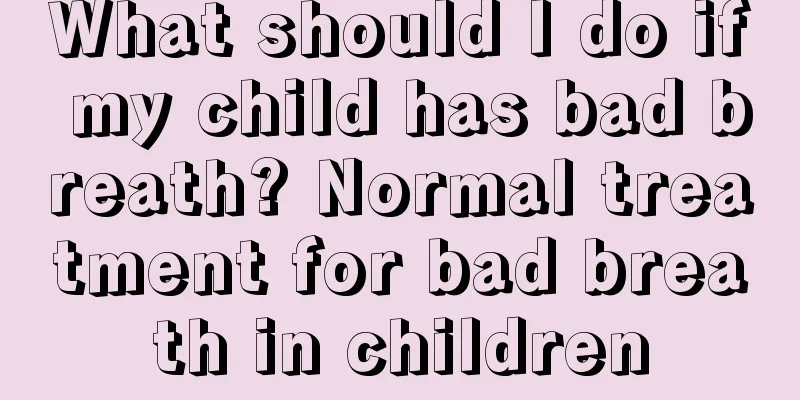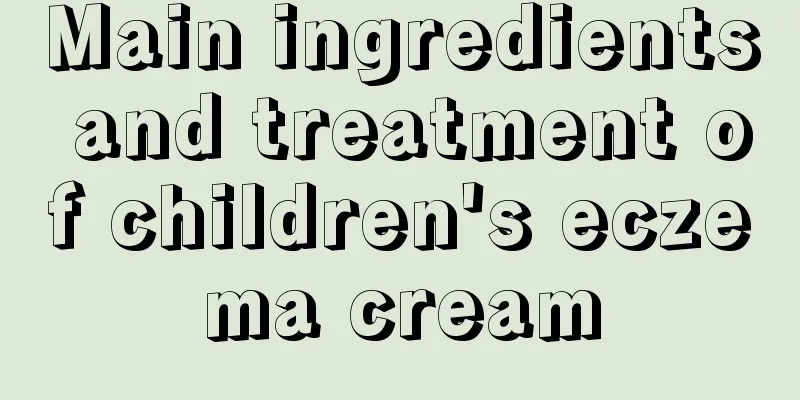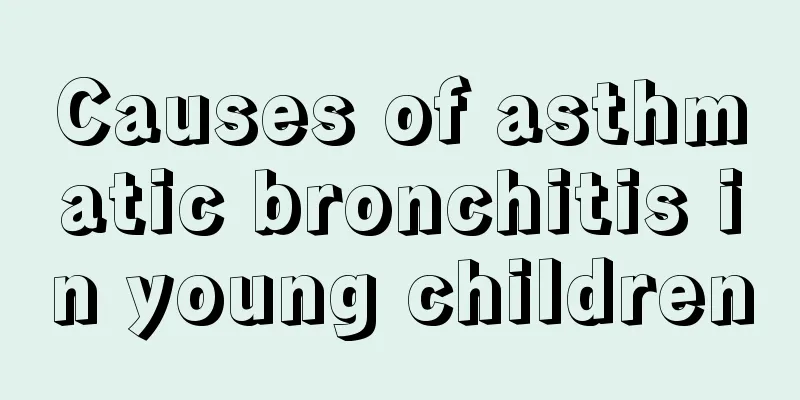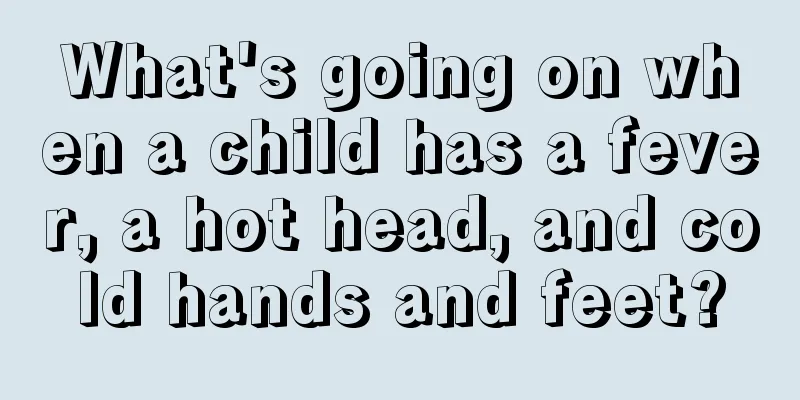What should I do if my child has bad breath? Normal treatment for bad breath in children

|
Bad breath in babies is a common oral disease, which is usually caused by improper diet. If the baby suffers from gastrointestinal diseases or indigestion, it can also easily lead to bad breath. You can relieve it through massage or medication, and eat more light and easily digestible food. Normal treatment for bad breath in children 1. Digestive drugs. Use digestive drugs such as pepsin and tannic acid protein. If the baby's bad breath is more serious, antibiotics can be used to treat it. 2. Traditional Chinese medicine and massage therapy can promote baby's digestion. 3. If the baby has severe vomiting and diarrhea, it is best not to eat within twelve hours. After that, the diet can slowly transition from foods such as rice soup to a normal diet. Children who are severely dehydrated need to be given fluids promptly. Why do babies have bad breath? 1. Improper feeding: Parents’ inappropriate feeding methods cause disruption to the baby’s gastrointestinal function. 2. Gastrointestinal inflammation: Food contaminated by bacteria can cause inflammation of the child's gastrointestinal tract. 3. Abuse of antibiotics: If children use excessive amounts of antibiotics, it will cause an imbalance in the gastrointestinal flora, with normal flora being suppressed while other flora continue to multiply. 4. Weather changes: As the climate turns colder, children’s immunity becomes lower and if their abdomen catches a cold, they may suffer from indigestion. What are the symptoms of bad breath in babies? 1. Diarrhea There are two types of indigestion: simple and toxic. Simplicity The child has diarrhea less than ten times a day, the stool is less watery, yellow, sometimes green, and the abdomen is bloated. The child sometimes vomits, but the frequency is very low. The fever does not occur often and the temperature is not too high. Although the appetite is poor, the complexion is good. Toxicity This is a more serious form of indigestion, which occurs suddenly and the child's temperature is higher when he has a fever. The frequency of diarrhea is high, usually around twenty times a day, and some children may have more times. In addition, the stool contains more water, usually in the form of water or egg drop soup. Children may vomit frequently, up to ten times a day or more, and become severely dehydrated. When the condition is more serious, symptoms such as convulsions and loss of consciousness may also occur. Parents must pay attention to this situation and take their children to the doctor in time, otherwise, this disease may cause the death of the child. 2. Foul-smelling stool There are a lot of food residues in the baby's stomach and intestines. Although diarrhea has not occurred yet, in order to avoid such a situation, parents need to adjust the child's diet in time and appropriately reduce the child's food intake. |
<<: What to do if your baby has hard and dry poop
>>: Do mothers know the reasons why infants and young children do not sleep well?
Recommend
What to do when a child has diarrhea while teething
Since the children are still relatively young, th...
Why does my child keep farting?
There are many happy things in the process of tak...
What to do if something is stuck in your baby's throat
The baby's body is very fragile. When somethi...
What to do if nephrotic syndrome relapses in children
For many families, the health of their children i...
Symptoms of moderate anemia in children
Children are often prone to this disease when the...
How to prevent children from hunching over?
Many parents will find that their babies always s...
Causes of Nosebleeds
Nosebleed, also known as epistaxis, is a problem ...
Is it normal for babies to sneeze every day?
For some babies, if they sneeze every day, it has...
Oral salt supplement for babies
Salt rehydration solution is a way to help babies...
What to do if your child accidentally takes antihypertensive medicine
Nowadays, almost every family has adults or elder...
What to do if your child's toenails are cracked
Children's health is what parents are most co...
What causes newborn convulsions?
The physical health of a newborn is very importan...
What to do if children have tooth decay and toothache
Tooth decay, commonly known as tooth decay, is a ...
What to do if your two-year-old baby has allergies
All mothers should know that babies' skin is ...
White spots on baby's skin
We all know that if there are large patches of wh...









